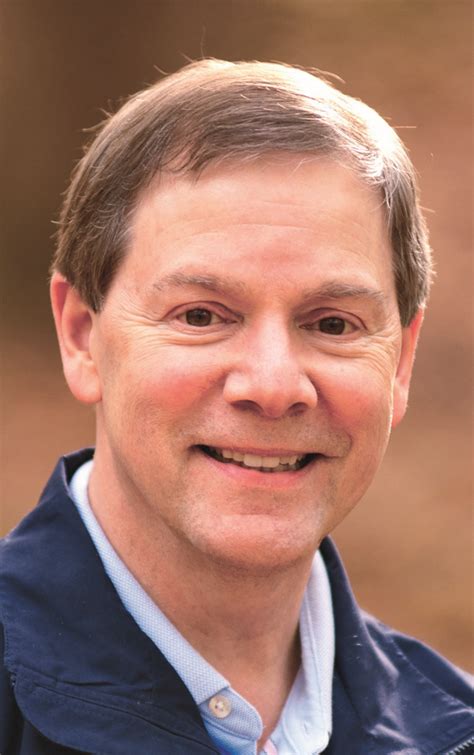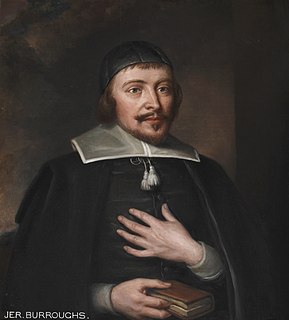A Quote by Eric Ludy
The fire to pursue God, the zeal to know God, and the humility to allow God to do whatever He pleases with our lives.
Related Quotes
We must be ready to allow ourselves to be interrupted by God... It is a strange fact that Christians and even ministers frequently consider their work so important and urgent that they will allow nothing to disturb them. They think they are doing God a service in this but actually they are disdaining God's "crooked but straight path". It is part of the discipline of humility that we must not spare our hand where it can perform service and that we do not assume that our schedule is our own to manage, but allow it to be arranged by God.
There are two gods. The god our teachers teach us about, and the God who teaches us. The god about whom people usually talk, and the God who talks to us. The god we learn to fear, and the God who speaks to us of mercy. The god who is somewhere up on high, and the God who is here in our daily lives. The god who demands punishment, and the God who forgives us our trespasses. The god who threatens us with the torments of Hell, and the God who shows us the true path.
There are two gods. A god who casts us off because of our sins, and a God who calls to us with His love.
Trusting God means transferring our confidence and hope from ourselves to him, acknowledging that we have no ability in ourselves to live in a way that pleases him. Only he can change us by the power of his Spirit in us. This trust is manifested in a context of obedience in our lives to the biblical mandates God calls us to pursue. Training means acting upon that trust by doing things that help us rely upon God more and live out his desire for us.
In a very real sense my science does inform my knowledge of God. If you would allow me to say that we never know God, because if I claim that I know God, I know something other than God, because God is not knowable, he is unknowable. So we have to approach it in that sense first, that my knowledge of God is always limited.
When [the saints] perform actions to God, then the soul says: 'Oh! that I could do what pleases God!' When they come to suffer any cross: 'Oh, that what God does might please me!' I labour to do what pleases God, and I labour that what God does shall please me: here is a Christian indeed, who shall endeavour both these. It is but one side of a Christian to endeavour to do what pleases God; you must as well endeavour to be pleased with what God does, and so you will come to be a complete Christian when you can do both, and that is the first thing in the excellence of this grace of contentment.
We are consumed by safety. Obsessed with it, actually. Now, I’m not saying it is wrong to pray for God’s protection, but I am questioning how we’ve made safety our highest priority. We’ve elevated safety to the neglect of whatever God’s best is, whatever would bring God the most glory, or whatever would accomplish His purposes in our lives and in the world.
From our limited vantage point, our lives are marked by an endless series of contingencies. We frequently find ourselves, instead of acting as we planned, reacting to an unexpected turn of events. We make plans but are often forced to change those plans. But there are no contingencies with God. Our unexpected, forced change of plans is a part of His plan. God is never surprised; never caught off guard; never frustrated by unexpected developments. God does as He pleases and that which pleases Him is always for His glory and our good.
What is sin? It is the glory of God not honored. The holiness of God not reverenced. The greatness of God not admired. The power of God not praised. The truth of God not sought. The wisdom of God not esteemed. The beauty of God not treasured. The goodness of God not savored. The faithfulness of God not trusted. The commandments of God not obeyed. The justice of God not respected. The wrath of God not feared. The grace of God not cherished. The presence of God not prized. The person of God not loved. That is sin.
Let us pause before the Child of Bethlehem. Let us allow our hearts to be touched, let us allow ourselves to be warmed by the tenderness of God; we need his caress. God is full of love: to him be praise and glory forever! God is peace: let us ask him to help us to be peacemakers each day, in our life, in our families, in our cities and nations, in the whole world. Let us allow ourselves to be moved by God's goodness.
You hear a lot about God these days: God, the beneficent; God, the all-great; God, the Almighty; God, the most powerful; God, the giver of life; God, the creator of death. I mean, we're hearing about God all the time, so we better learn how to deal with it. But if we know anything about God, God is arbitrary.
Men who know their God are before anything else men who pray, and the first point where their zeal and energy for God's glory come to expression is in their prayers. If there is little energy for such prayer, and little consequent practice of it, this is a sure sign that as yet we scarcely know our God.
The Bible is teh means through which we are introduced to Jesus and invited to follow Him in the life of humility and service. Secured by the knowledge that in Christ, our origin... and destination is God, we will yield the fruit of service to God. This is the "so what" of our Bible reading. Does it shape our spirits in love and humility? Does it lead us more fully into life with God? (Life with God, p. 34-35)


































